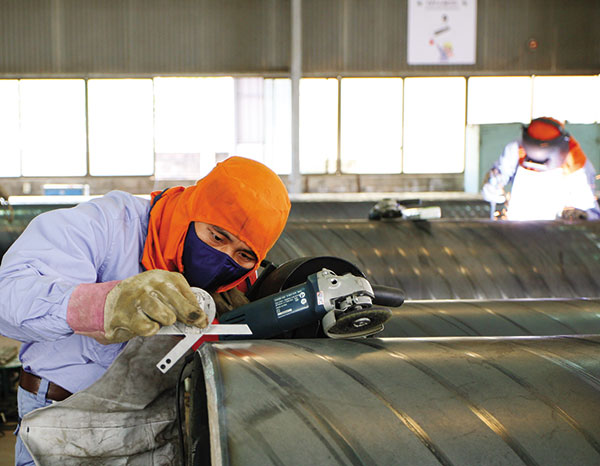Hong Kong FTA to give big player new leverage
 |
Could you give us an overview of the newly-signed ASEAN-Hong Kong Free Trade Agreement?
On November 12, Hong Kong signed a free trade agreement with ASEAN. This agreement will take effect in January 2019 at the earliest, as it takes some time for each state member of ASEAN to ratify. Specifically, it will take more than a year to go through procedures for the rules to be effective.
Once it comes into effect, the ASEAN-Hong Kong Free Trade Agreement (AHKFTA) will bring about legal certainty and better market access for trade in goods and services for the two parties. The agreement will improve mutual investment protection between Hong Kong and ASEAN member states. It will not only enhance trade and investment flow between Hong Kong and ASEAN, but also facilitate business opportunities for service providers.
On trade in goods, the ASEAN member states have agreed to reduce the custom duties for goods originating from Hong Kong. Different countries may have different commitments. Vietnam, for example, will reduce their tariffs by 75 per cent for the next 10 years and another 10 per cent for the following 14 years. Except for a few types of goods, such as tobacco, petroleum, and certain food items [including dairy products, agriculture products, fishery and aquaculture products], imports of Hong Kong-made products to Vietnam will be tariff-free upon full implementation of the agreement.
From January 2019, Hong Kong-produced merchandise is expected to have better access to ASEAN markets, including trade in goods and services as well. Hong Kong and ASEAN countries will be able to eradicate the barriers for service providers who enter the market, as well as encourage more trade exchange.
  |
| With the new ASEAN-Hong Kong FTA, Hong Kong’s already big FDI involvement with Vietnam is set to grow larger, Photo: Le Toan |
What upcoming impacts will the AHKFTA have on Hong Kong investment activities in Vietnam?
In 2016, Hong Kong investment into Vietnam amounted to $1.1 billion, up 75 per cent against the previous year. At present, Hong Kong is Vietnam’s fifth-largest inward foreign direct investor.
There was no comprehensive investment protection covering all sectors in the past, but under the new legal framework there will be protection between two partners. As a result, I am sure more Hong Kong companies will be willing to invest in Vietnam.
Manufacturing is one of the areas Hong Kong companies will be interested in. Land prices and labour costs in Vietnam are competitively lower than those of Hong Kong and the Chinese mainland. Hong Kong was a production centre in the past. In the 1980s, Hong Kong moved its production to southern China due to rising land prices and labour costs.
On the back of investment protection under the AHKFTA, more Hong Kong companies are looking to move their production to Vietnam to deal with rising land and labour costs in southern China. Textile and garment, toys, electronics, and automobiles will be potential areas for upcoming investment.
Last year, Vietnam enjoyed a 6.2 per cent growth in GDP, and this year [the figure is] probably 6.5 per cent. Due to the country’s strong economic growth and expanding middle class, Hong Kong companies may target the retail market by opening shops here.
In addition, Vietnam needs capital and expertise from Hong Kong to help develop its economy and infrastructure. In this regard, Hong Kong, as a well-established international financial centre, will be able to contribute. While Vietnam’s infrastructure in roads and subways is yet to be fully developed, Hong Kong is [well-known] for its efficient subway system. We have gathered experience in the field for over 40 years. Thus, Hong Kong companies are well positioned to explore infrastructure opportunities in the Vietnamese market.
How have bilateral ties between Hong Kong and Vietnam developed in the past few years?
Hong Kong has always maintained a very strong relationship with Vietnam in terms of trade. The two sides enjoy close and strong bilateral ties with frequent business connections. In the first 10 months of 2017, Vietnam was Hong Kong’s ninth-largest trade partner worldwide and its third-largest trade partner in ASEAN. Bilateral trade between the two parties amounted to $13 billion in the period, up 11.6 per cent against last year.
Vietnam is also an important export market for Hong Kong merchandise. Vietnam is Hong Kong’s sixth-largest export market worldwide and number-one export market in ASEAN. In the year’s first 10 months, Hong Kong exports to Vietnam amounted to $8.2 billion, up 10.5 per cent year-on-year. On the other hand, Hong Kong imports from Vietnam increased by 13 per cent year-on-year, reaching $6.4 billion in the same period.
What the stars mean:
★ Poor ★ ★ Promising ★★★ Good ★★★★ Very good ★★★★★ Exceptional
Latest News
More News
- MAE names big 10 policy wins in 2025 (February 06, 2026 | 08:00)
- US firms deepen energy engagement with Vietnam (February 05, 2026 | 17:23)
- Vietnam records solid FDI performance in January (February 05, 2026 | 17:11)
- Site clearance work launched for Dung Quat refinery upgrade (February 04, 2026 | 18:06)
- Masan High-Tech Materials reports profit: a view from Nui Phao mine (February 04, 2026 | 16:13)
- Hermes joins Long Thanh cargo terminal development (February 04, 2026 | 15:59)
- SCG enhances production and distribution in Vietnam (February 04, 2026 | 08:00)
- UNIVACCO strengthens Asia expansion with Vietnam facility (February 03, 2026 | 08:00)
- Cai Mep Ha Port project wins approval with $1.95bn investment (February 02, 2026 | 16:17)
- Repositioning Vietnam in Asia’s manufacturing race (February 02, 2026 | 16:00)
















 Mobile Version
Mobile Version